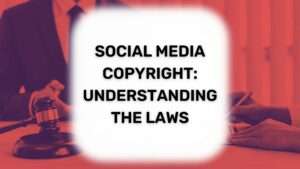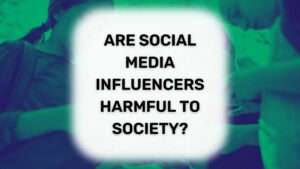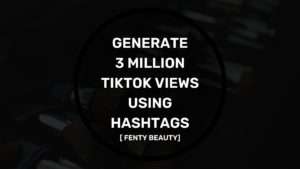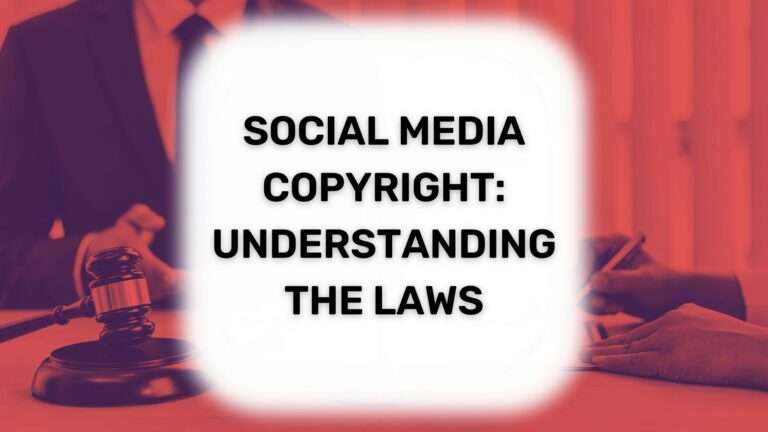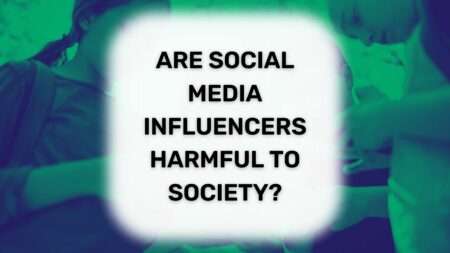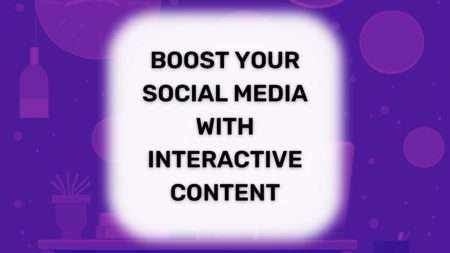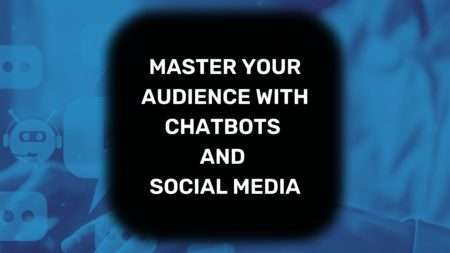What you’ll learn…
Introduction
Social media has transformed the way we communicate, share information, and engage with the world. However, as social media platforms have become ubiquitous, so have copyright issues related to the use of digital content. If you use social media for personal or professional purposes, it is essential to understand the laws surrounding copyright to avoid legal consequences and protect your own intellectual property.
Copyright basics
Copyright is a legal concept that protects the creators of original works from unauthorized use and distribution. In the digital age, copyright has become increasingly complex, as the lines between original content and derivative works can become blurred.
Who owns the copyright of a social media post?
One of the first things to understand about copyright is who owns it. In the case of social media, the owner of the copyright for a post is usually the person who created it. However, there are exceptions, such as if the post was created as part of a work-for-hire arrangement, in which case the employer may own the copyright.
What types of content are eligible for copyright protection?
In general, copyright law protects a wide range of creative works, including text, images, videos, and music. To be eligible for copyright protection, a work must be original and fixed in a tangible medium of expression, meaning it must be recorded in some way, such as in writing, on film, or in a digital format.
How long does copyright protection last?
The duration of copyright protection varies depending on the type of work and the country it was created in. In the United States, for example, copyright protection lasts for the life of the author plus 70 years for works created after January 1, 1978. For works created before that date, the rules are more complicated. It is important to research the laws that apply to the content you wish to use or create to guarantee you are in compliance with copyright regulations.
Copyright infringement on social media
Copyright infringement occurs when someone uses copyrighted material without permission or beyond the scope of any applicable license or exception. On social media, copyright infringement can take many forms, including sharing, reposting, or modifying someone else’s content without permission.
Examples of common copyright violations on social media
Some examples of common copyright violations on social media include using someone else’s photo or video in a post without attribution, reposting a meme or GIF without permission, or using copyrighted music in a video without a license.
Consequences of copyright infringement on social media
The consequences of copyright infringement on social media can range from a simple takedown request to legal action and monetary damages. Social media platforms have systems in place to handle copyright infringement claims, and users who violate copyright law can face penalties ranging from account suspension to litigation.
How to avoid copyright infringement on social media
To avoid copyright infringement on social media, it is essential to obtain permission before using someone else’s content, whether through a license, written permission, or a Creative Commons license. When in doubt, it is always best to err on the side of caution and assume that all content is protected by copyright unless stated otherwise.
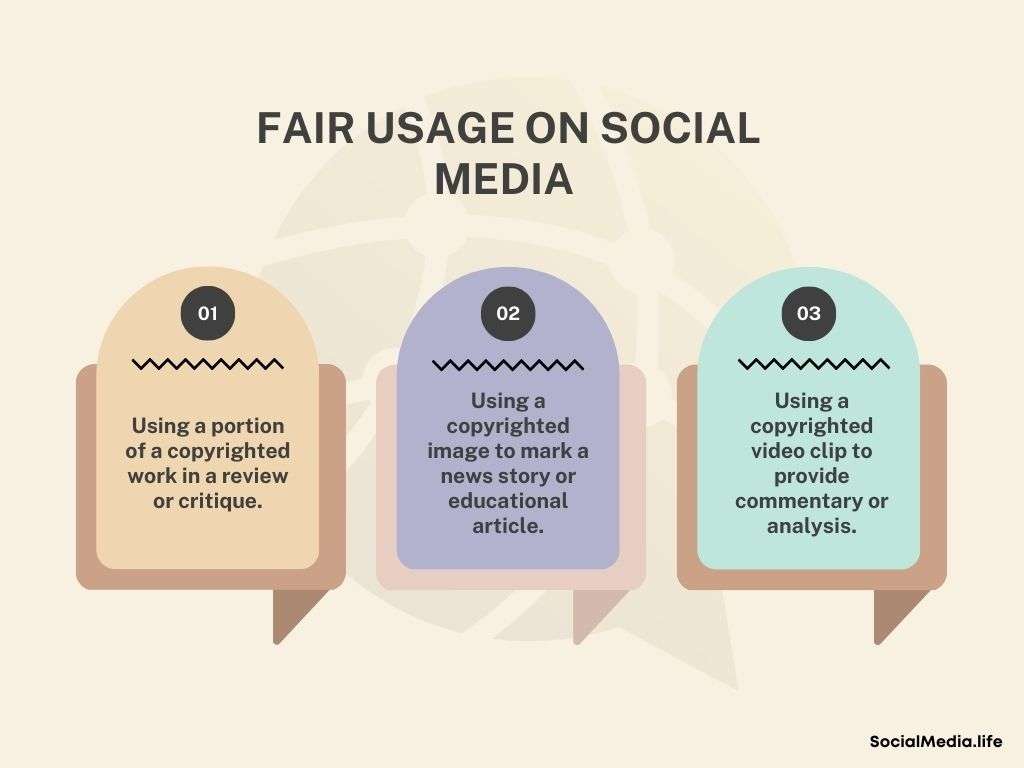
Fair use and its limits
Fair use is a legal doctrine that allows for the limited use of copyrighted material without obtaining permission from the copyright holder. Fair use is a crucial exception to copyright law that allows for the use of copyrighted material for purposes such as criticism, comment, news reporting, teaching, scholarship, or research.
Criteria for determining fair use
On social media, fair use can come into play in a variety of ways, such as using copyrighted material in a parody, making a transformative work, or providing commentary or analysis of a work. Determining whether a use is fair use depends on a variety of factors, including the purpose and character of the use, the nature of the copyrighted work, the amount and substantiality of the bit used, and the effect of the use on the potential market for or value of the copyrighted work.
Examples of fair use on social media
Some examples of fair use on social media include using a portion of a copyrighted work in a review or critique, using a copyrighted image to illustrate a news story or educational article, or using a copyrighted video clip to provide commentary or analysis.
The limits of fair use on social media
It is important to note that fair use is not a blanket exception to copyright law and has its limits. The amount of copyrighted material used in a work must be reasonable and limited, and the use must not adversely affect the potential market for the copyrighted work.
Fair use is an essential concept for anyone using copyrighted material on social media. Understanding the factors that determine fair use and the limits of this exception can help ensure that your use of copyrighted material is legal and ethical.
DMCA takedown notices
A DMCA takedown notice is a notification sent to an online service provider (such as a social media platform) by a copyright owner or their agent, requesting that infringing material be removed. The DMCA (Digital Millennium Copyright Act) is a U.S. copyright law that provides a framework for addressing online copyright infringement, and DMCA takedown notices are a key tool in enforcing copyright law on social media.
How to file a DMCA takedown notice
To file a DMCA takedown notice, the copyright owner or their agent must send a written notification to the online service provider that includes specific information, such as a description of the copyrighted work and the location of the infringing material. Once the notice is received, the online service provider must remove the material or risk losing its immunity from copyright infringement liability.
How to respond to a DMCA takedown notice
If you receive a DMCA takedown notice, it is important to take it seriously and respond promptly. Failing to respond or ignoring the notice can result in the removal of the infringing material and potential legal action. Here’s a great article from Legal Zoom about what to do after receiving a DMCA takedown notice.
To respond to a DMCA takedown notice, you can file a counter-notice if you believe that your use of the material is legal or covered by fair use. This is a written statement that disputes the validity of the takedown notice and asserts that the material in question is not infringing or that the use is covered by fair use.
Best practices for dealing with DMCA takedown notices
When dealing with DMCA takedown notices, it is important to follow best practices to avoid legal issues and protect your rights. Some best practices include:
- Immediately verify that the copyrighted material is yours OR that you have a legal right to use it.
- Respond promptly and professionally to any notices you receive.
- Seek legal advice if you have any questions or concerns.
DMCA takedown notices are an important tool for enforcing copyright law on social media. Understanding how to file a notice, how to respond to a notice, and best practices for dealing with notices can help protect your copyrighted material and make sure that your use of other material is legal and legit.
Creative Commons licenses
Creative Commons licenses are a type of license that allows content creators to share their work with others while retaining some of their rights. These licenses provide a way for creators to give permission for their work to be used and shared by others without requiring individual permission for each use. Creative Commons licenses are used for a wide range of creative works, including text, images, music, and video.
Types of Creative Commons licenses
There are six different types of Creative Commons licenses, each with its own set of conditions that the creator can apply to their work. These licenses range from the most permissive, which allows others to use, modify, and distribute the work for any purpose, to the most restrictive, which only allows others to use the work in its original form for non-commercial purposes. The different license types are:
- CC0: No Rights Reserved
- CC BY: Attribution
- CC BY-SA: Attribution-ShareAlike
- CC BY-ND: Attribution-NoDerivs
- CC BY-NC: Attribution-NonCommercial
- CC BY-NC-SA: Attribution-NonCommercial-ShareAlike
How to use Creative Commons licenses on social media
When sharing content on social media, it is important to consider the licenses of the works you are sharing. If you are sharing your own work, you can choose to apply a Creative Commons license to it to give others permission to use and share it. If you are sharing someone else’s work, you should check the license that the creator has applied to the work to ensure that you are using it legally and ethically.
To use a Creative Commons license on your own work, you can visit the Creative Commons website and choose the license that best suits your needs. You can then apply the license to your work by including the license information along with the work, such as in the metadata or on the work itself.
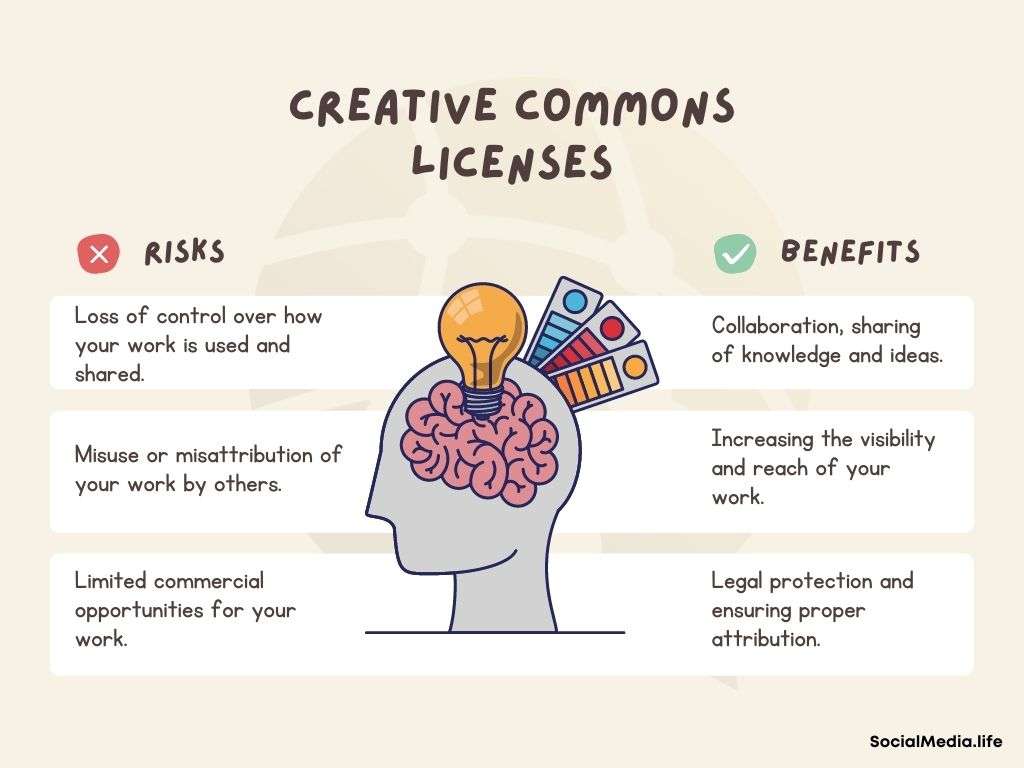
Benefits and drawbacks of using Creative Commons licenses
The use of Creative Commons licenses on social media has both benefits and drawbacks.
Some of the benefits include:
- Encouraging collaboration and sharing of knowledge and ideas
- Increasing the visibility and reach of your work
- Providing legal protection for your work and ensuring proper attribution
Some of the drawbacks include:
- Loss of control over how your work is used and shared
- Misuse or misattribution of your work by others
- Limited commercial opportunities for your work
Creative Commons licenses provide a way for creators to share their work with others while retaining some of their rights. Understanding the different types of licenses and how to use them on social media can help you legally and ethically share your own work and use the work of others. However, it is important to carefully consider the benefits and drawbacks of using Creative Commons licenses before applying them to your work.
Conclusion
Recognizing social media copyright law is crucial for anyone who uses social media platforms to share content. Copyright infringement can lead to serious legal consequences, including fines and legal action. It’s essential to know the basics of social media copyright law, such as the fair use doctrine, DMCA takedown notices, and Creative Commons licenses.
If you create content for social media, it is your responsibility to ensure that you have the right to use any copyrighted material in your content. You should always obtain permission from the copyright owner before using their work, or use materials that are in the public domain or covered by a Creative Commons license.
In case you receive a DMCA takedown notice, respond promptly and appropriately to avoid legal repercussions. By using Creative Commons licenses, you can legally share your content while protecting your intellectual property rights.
By understanding the laws and regulations surrounding social media copyright, you can protect yourself and others from potential legal disputes. Remember, when in doubt, always consult a legal expert for guidance.
